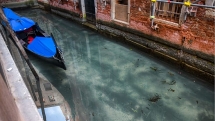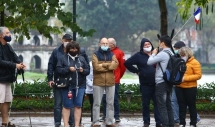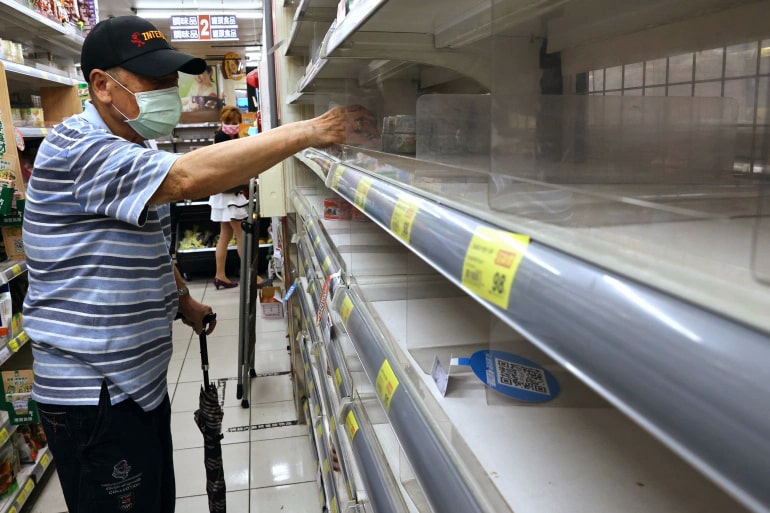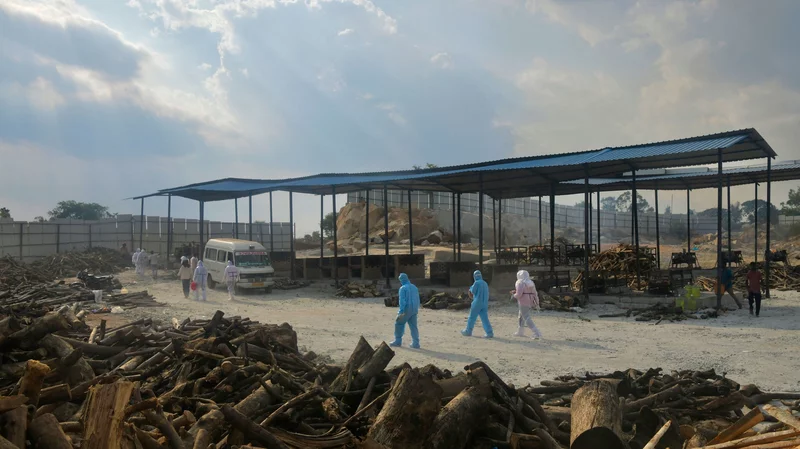Environmental improvement – the silver lining amidst COVID-19 outbreak
 | "Third wave" Covid-19 crisis among world's most vulnerable people |
| Italy’s Venice turns crystal clear amid COVID-19 nationwide lockdown | |
| Climate change, corruption behind Venice floods |
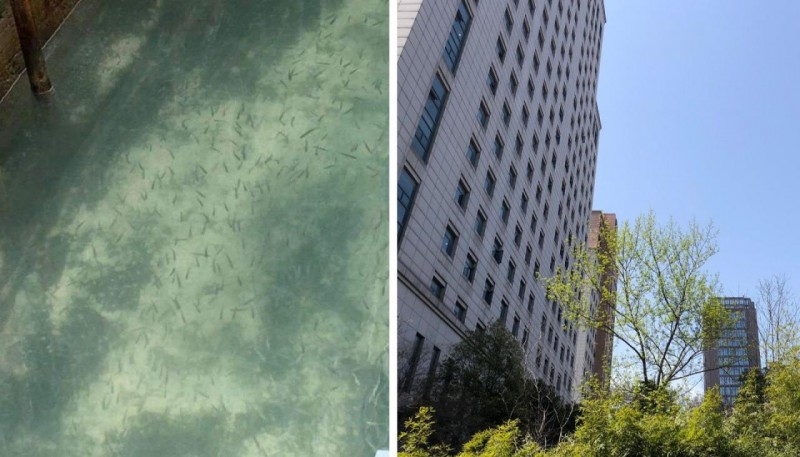 |
| Venice canal in Italy and the blue sky in China are proves of the positive impacts large-scale lockdown have on the environment (Photo: News Hub) |
Obviously, the situation that the people of the world are dealing with right now is tragic, lives are being lost, and there are millions now facing unemployment due to the economic shutdown that has resulted from the quarantines. It is unfortunate that the world would only slow down after experiencing the type of suffering that we have seen in recent months, but the drastic drop in pollution in the region’s affected by the outbreak, could be a potential silver lining to this terrible situation.
Italy’s Venice turns crystal clear amid COVID-19 nationwide lockdown
On Tuesday, after days of government-imposed lockdown amidst the rampant COVID-19 pandemic, Venice locals were surprised to learn they had something to celebrate.
Thanks to less traffic on waterway, the dreaming canal of Venice ‘just hits its reset button’, becoming less murky, much clearer, with small fish visible swimming around. The surrounding area also enjoy a much-more purified air.
“Here’s an unexpected side effect of the pandemic — the water’s flowing through the canals of Venice is clear for the first time in forever. The fish are visible, the swans returned,” they wrote, alongside images taken in Burano, an island in the northern Venetian Lagoon. The tweet shared Tuesday has already garnered over 900,000 likes.
'A dramatic drop-off': China replaces smog with blue skies
Scientists believe a recent reduction in air pollution across much of China – the ground zero of the epidemic, appears to be linked to the county's efforts to control the spread of the new coronavirus.
The outbreak of the virus, which was first detected late last year in the central Hubei province, blocked transport and movement and massively disrupted business activity across the country.
The world's first case of COVID-19 was reported in Wuhan in January, which has since become the first Chinese city to experience a noticeable uptick in air quality.
Locals celebrated that rather than the thick smog that normally blankets the city, blue skies had emerged instead.
This improvement is confirmed by NASA satellite imagery, which shows it's not just in Wuhan that things are getting better, but the entire country.
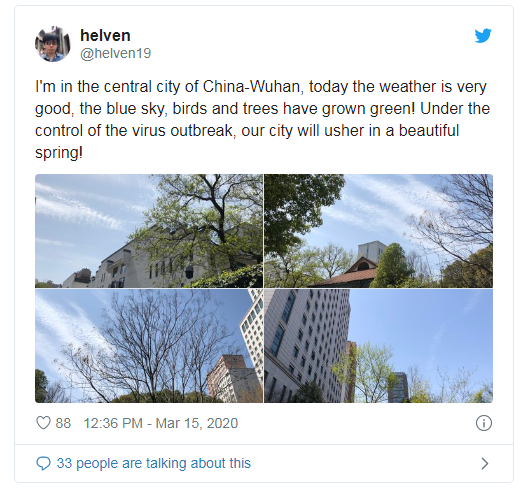 |
| One person living in Wuhan city tweets on March 15 (Photo: News Hub) |
| With fewer factories running, cars and lorries on the roads, and planes in the air, the skies have become noticeably clearer. Levels of nitrogen dioxide, a pollutant that comes primarily from the burning of fossil fuels, were down by as much as 30 percent, according to NASA. |
NASA and European Space Agency pollution monitoring satellites issued two images which show a significant change in nitrogen dioxide levels in the air over the country between the start of the year and the end of February.
The first image reveals large pockets of pollution over the big cities, including the capital, Beijing, Shanghai and Hong Kong. The second image shows that most of that pollution has disappeared.
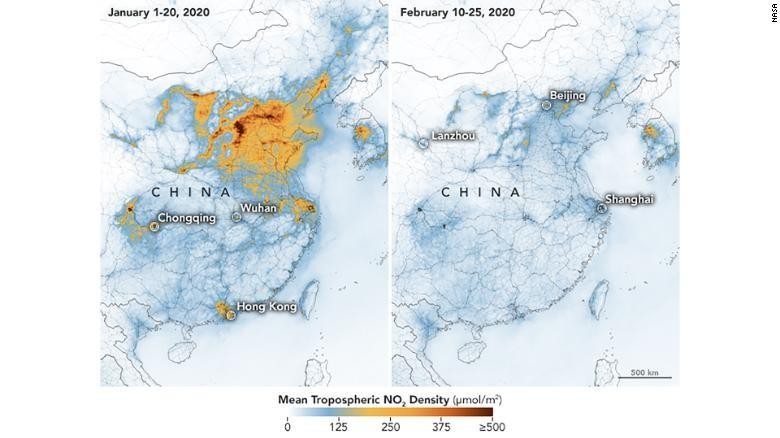 |
| Satellite imagery shows NO2 levels have fallen dramatically in the last month.(Photo credit: NASA) |
The timing of that improvement in air quality coincides with the moment that government officials in China put Wuhan, the epicentre of the outbreak, into lockdown.
"This is the first time I have seen such a dramatic drop-off over such a wide area for a specific event," said NASA air quality researcher Fei Liu.
Tens of thousands of lives saved - expert
| "The reductions in air pollution in China caused by this economic disruption likely saved 20 times more lives in China than have currently been lost due to infection with the virus in that country," he wrote on online scientific research platform G-Feed. One Stanford University expert, Marshall Burke, believes between 50,000 and 75,000 premature deaths have been prevented already, simply due to cleaner air across the country.While coronavirus has tragically claimed 3237 Chinese lives, there are some suggestions many more have been saved by the improved air quality. Tens of thousands of lives saved - expert |
However, Dr Burke says he doesn't want to insinuate that COVID-19 is a good thing for humanity overall.
"Does this mean pandemics are good for health? No," he said.
"Instead, it means that the way our economies operate absent pandemics has massive hidden health costs, and it takes a pandemic to help see that."
 |
| An expert says many more lives have been saved than lost in China, due to better air quality. (Photo: AI Jazeera) |
Is positive environmental change sustainable?
| While many are noting the positive environmental impacts that have followed the spread of COVID-19, the International Energy Agency (IEA) isn't hopeful it'll have a lasting impact. The global energy watchdog says reduced air travel and less industrial pollution are temporary, and likely to bounce back quickly once the threat of coronavirus passes. |
"There is nothing to celebrate in a likely decline in emissions driven by economic crisis because in the absence of the right policies and structural measures, this decline will not be sustainable," said IEA executive director Fatih Birol.
With this very concern in mind, eight US Democrats signed a letter urging President Donald Trump to put conditions on greenhouse gas emission at the forefront of any financial aid deal with US airlines.
"If we give the airline and cruise industries assistance without requiring them to be better environmental stewards, we would miss a major opportunity to combat climate change and ocean dumping," the letter reads.
Former President Barack Obama applied climate change measures when the US government bailed out GM and Chrysler in 2009, using the opportunity to enforce stricter fuel-economy rules.
However President Trump has since relaxed those rules and pulled out of the Paris Climate Agreement, which doesn't bode well for the chances of him introducing tough environmental measures for the air travel and cruise industries.
In topics
Recommended
 World
World
Pakistan NCRC report explores emerging child rights issues
 World
World
"India has right to defend herself against terror," says German Foreign Minister, endorses Op Sindoor
 World
World
‘We stand with India’: Japan, UAE back New Delhi over its global outreach against terror
 World
World
'Action Was Entirely Justifiable': Former US NSA John Bolton Backs India's Right After Pahalgam Attack
Popular article
 World
World
Nifty, Sensex jumped more than 2% in opening as India-Pakistan tensions ease
 World
World
Easing of US-China Tariffs: Markets React Positively, Experts Remain Cautious
 World
World
India strikes back at terrorists with Operation Sindoor
 World
World

